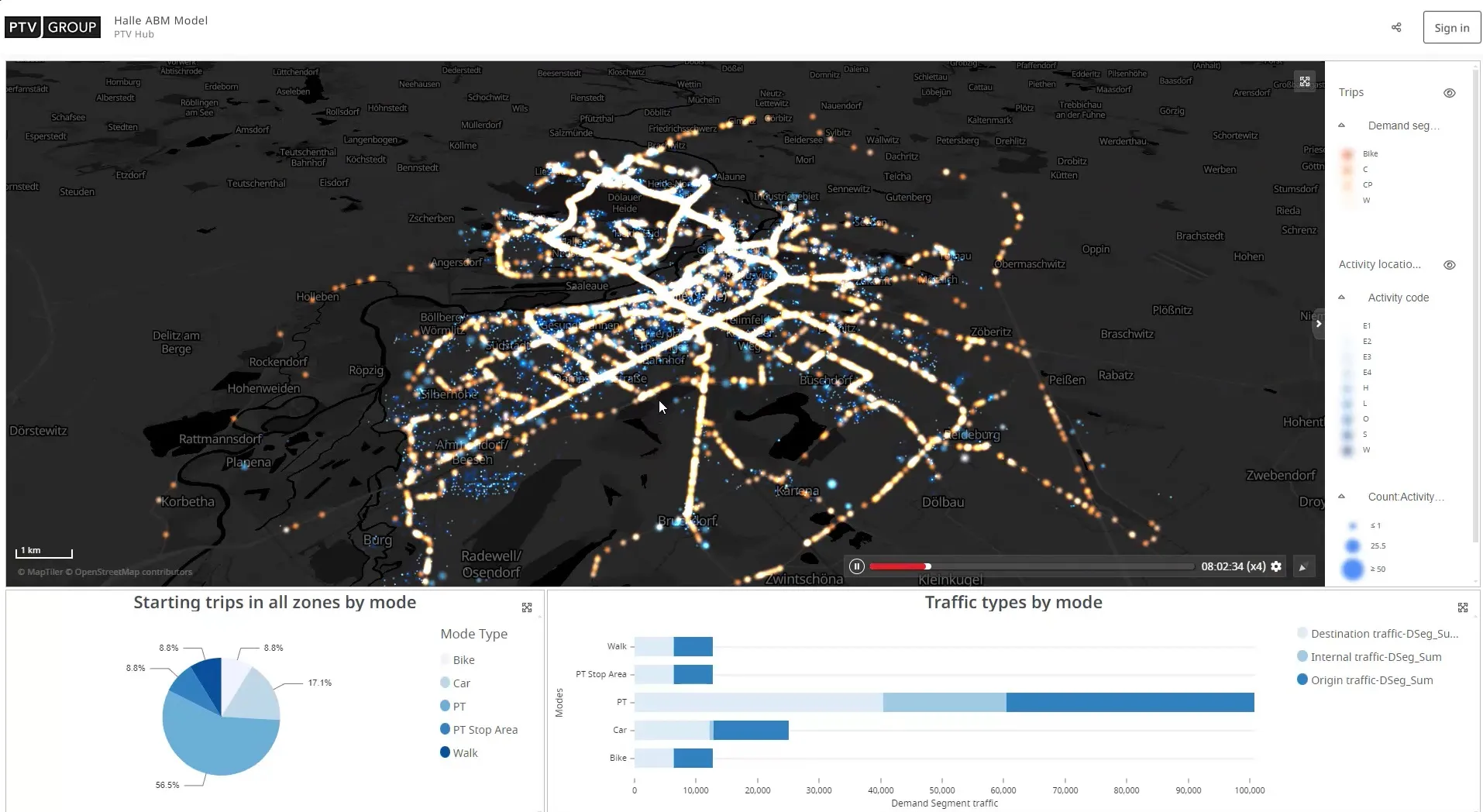
PTV Group is to launch a cloud-based collaborative modelling platform for mobility planning, design and optimisation.
The Software as a Service solution connects and manages desktop licences of PTV Visum, Vissim, Viswalk and Vistro.
“The launch of PTV Hub marks a significant milestone for us,” said Christian U. Haas, CEO of PTV Group.
“It’s the first true cloud-based collaborative modelling platform in the market, and a key component of our Dynamic Multimodal Network Management concept - a revolutionary system for cities to plan, manage, and operate multimodal transportation networks."
The aim is to empower cities to seamlessly integrate public transit, walking, cycling, shared mobility services, as well as connected and autonomous vehicles.”
The idea is that PTV Hub will be a central point through which to organise projects, manage licences and compute models in the cloud.
Users can upload and download models from desktop software to cloud storage, streamlining workflows.
PTV Hub’s Models app allows users to track and manage models, scenarios, revisions and results, making them easily accessible to both internal and external teams.
The platform’s Dashboard app provides a virtual environment for project insights and analytics. Customisable dashboards enable users to visualise results, compare models and present simulations with personalised maps, charts, and animations.
PTV Hub also features a License app that PTV says simplifies licence management, delivery and updates.
System administrators can view licence statuses, manage subscriptions, and control user access. There is also a Workspace app in development, which the firm says will "enhance productivity by offering a structured, collaborative environment for transport modelling project management".
There will be a LinkedIn Live session to introduce the new platform on 14 November at 9am CET and 4pm CET.








